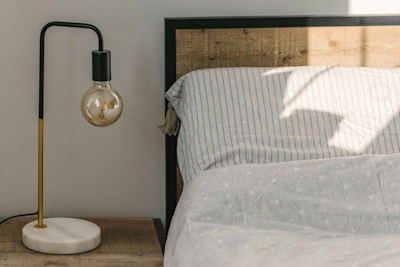
The benefits of napping for productivity and overall health
Do you believe in naps?
We live in a crazy-busy world, where the demands of work and personal life often intertwine, and finding time to rest and rejuvenate can be challenging.
We are all hyper-connected, overworked, and most of us are constantly tired. Some of us are often exhausted. However, did you know that there's a simple and effective solution which can enhance both productivity and overall health: napping. Yes, you read it right! A short nap during the day can have remarkable benefits, allowing you to recharge and optimize your performance.
But before you go curl up for your afternoon nap, let’s go over the science behind the power of napping and explore its numerous advantages, from improving productivity and learning to promoting growth, recovery, and regulating blood pressure.
Naps are like tiny pockets of greatness, where you can curl up and snooze away the world's problems, one dream at a time.
Napping improves productivity
It's no secret that staying focused and productive throughout the day can be a struggle. However, taking a well-timed nap can provide a substantial boost to your productivity levels. Research has shown that a short nap, ranging from 10 to 30 minutes, can improve cognitive function, alertness, and reaction time. In fact, studies by NASA found that a 26-minute power nap boosted performance by 34% and alertness by 54%.[1]
So, when you're feeling fatigued or mentally drained, a nap can serve as a reset button, allowing you to approach tasks with renewed energy and clarity.
Napping Enhances Understanding and Learning
Have you ever experienced a mental block while trying to grasp new concepts or study complex material? Napping might just be the missing ingredient to enhance your learning experience. Studies have revealed that napping can improve memory consolidation and information processing. During sleep, the brain actively organizes and stores newly acquired information, making it easier for you to recall and understand later. So, if you're preparing for an important exam or working on a challenging project, a nap can optimize your brain's ability to retain and process information.[2]
Encourages the Body to Eat Ideally
We all know that maintaining a healthy and balanced diet is crucial for overall well-being. Surprisingly, napping can play a role in supporting your dietary goals. Research suggests that short naps can regulate hunger hormones, such as ghrelin and leptin, helping you make healthier food choices. [3]
By keeping these hormones in check, napping reduces cravings for sugary snacks and high-calorie foods. As a result, you are more likely to opt for nutrient-rich meals, supporting your long-term health and vitality.
Promotes Growth and Recovery
When we sleep, our bodies undergo essential processes for growth, repair, and recovery. Napping can contribute to this rejuvenation by providing additional restorative benefits throughout the day.
Studies have shown that during a nap, the body releases growth hormone, which aids in tissue repair and muscle development. Moreover, a quick nap can also reduce inflammation and enhance immune function, by reducing the levels of inflammatory cytokines and norepinephrine in the body making you less susceptible to illness and promoting overall well-being. [4]
Regulates Blood Pressure
Maintaining healthy blood pressure levels is vital for cardiovascular health. Several studies have found that regular napping can help regulate blood pressure, particularly in individuals with high blood pressure or hypertension. In fact, according to the American College of Cardiology, for each hour of napping, the average 24-hour systolic blood pressure lowered by 3 mm Hg. [5]
Napping also offers a brief period of relaxation and stress reduction, which can lead to decreased blood pressure readings. By incorporating napping into your routine, you may reduce the risk of heart disease and other related health complications.
Daytime Napping: A Complement, Not a Substitute
While napping offers numerous benefits, it is important to note that it should not replace an inadequate amount of nighttime sleep. A full night's rest is essential for optimal health and well-being. Instead, daytime napping should be seen as a supplement to help restore energy levels and improve performance when needed. Power naps, typically lasting between 10 to 30 minutes, provide the recuperative advantages of sleep without interfering with nighttime sleep patterns.
Final Thoughts
Napping can be a powerful tool to enhance productivity and overall health. Incorporating regular napping into your lifestyle can be a game-changer, providing you with a natural energy boost, improved cognitive function, and better overall health.
To read more on how you can learn to nap like a pro, check out the article on our blog, related to that subject: READ: Nap like a PRO: The Secret of the POWER NAP
learning, ideal eating habits, growth, recovery, and regulated blood pressure.
Your mind and body will thank you for it.
So, the next time you feel your energy waning or your focus drifting, don't hesitate to find a cozy spot, close your eyes, and indulge in a revitalizing nap.
Related stories

Reclaiming the Year Ahead, One Intentional Choice at a Time
Reclaim your year through small, intentional choices. Learn how digital decluttering and mindful technology can restore focus, calm, and clarity.

5 Things Sleep Experts Say We Still Get Wrong About Sleep
Are you making these 5 sleep mistakes? Learn what experts say about sleep trackers, workout timing, and why hitting snooze makes you feel worse, not better.

How Mindful Technology Use Improves Sleep
Improve sleep with mindful tech. Discover Mudita's tips to reduce blue light, eliminate disruptions, and set digital boundaries for a peaceful bedtime routine.
If you'd like to receive the best stories from our blog, keep up to date with our progress and get notified about our product releases and special discounts.